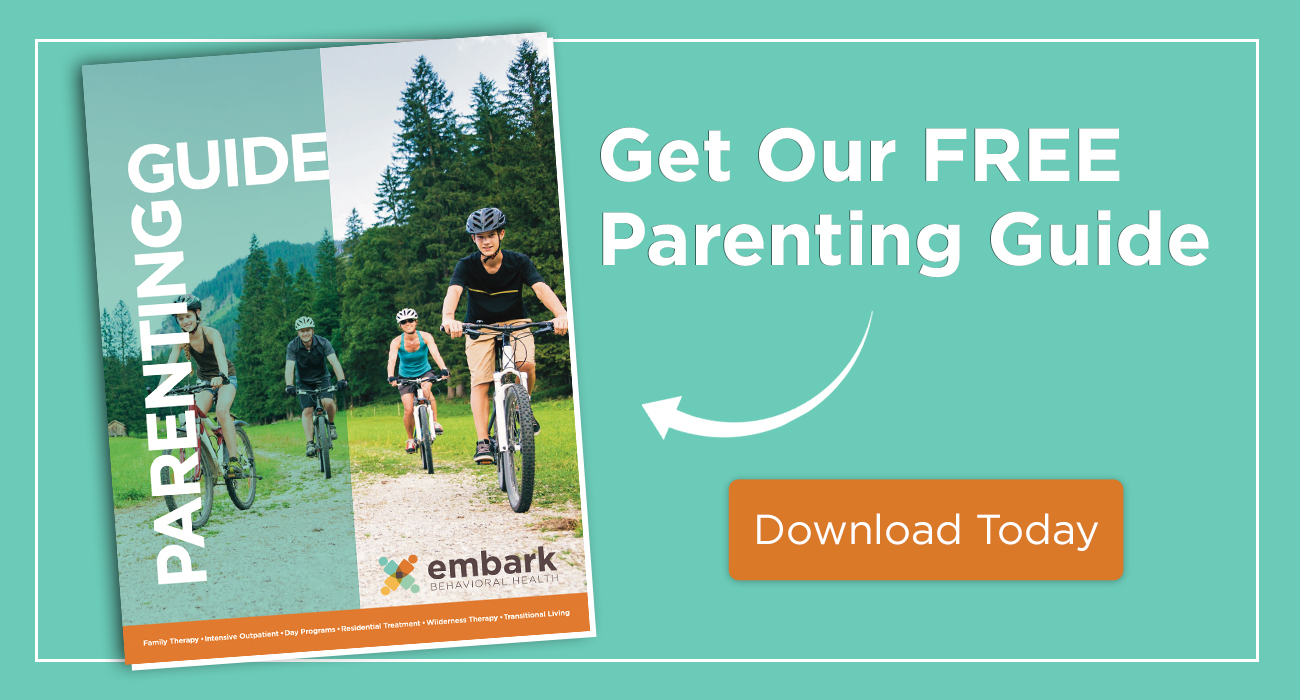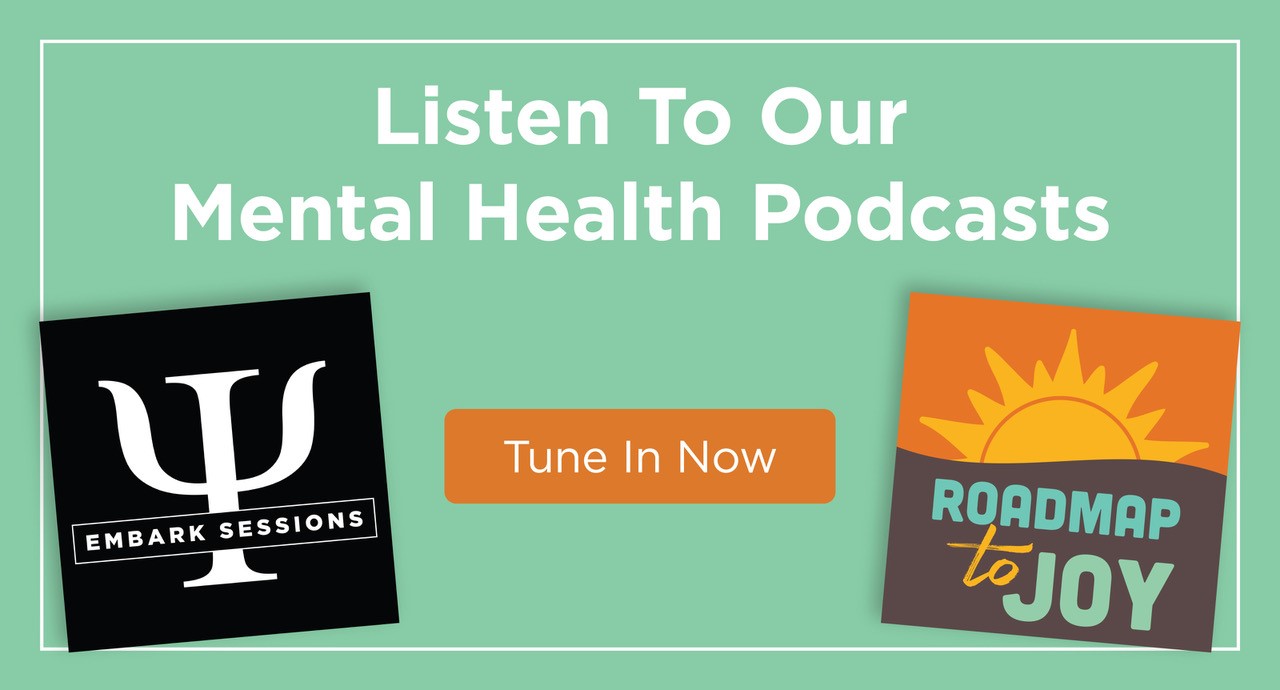Trauma and Adoption: How To Help Your Teen Heal
While many teens have benefited from being adopted, for some, trauma and adoption can coincide with one another.
“Adoption can be a traumatic event because it results in a separation within the caregiving relationship, and thus feelings of insecurity, fear, abandonment, and loss can occur,” said Chris Austin, executive clinical director at Calo Programs, a residential treatment program in Missouri.
If your teen was adopted, they could be experiencing different psychological effects as well as attachment issues or disorders. Teenagers who were part of a transracial adoption could also be experiencing transracial adoption-related trauma.
Just how do adoption and trauma truly relate to each other, and how can you best support your teen if they’re having a tough time?
How Are Adoption and Trauma Related?
When it comes to the question “Is adoption traumatic?”, it’s important to note that adoption itself is not generally the source of trauma. Rather, the disruption in the caregiving relationship that occurs as a result of relinquishment of a child can create a traumatic event.
For example, when the biological mother gives the infant to the adoptive parent, it affects the child’s neurobiological development and creates a disruption within the child’s caregiving system. The change of environment can create a state of fear, and as the child grows up, they can be hardwired for a general experience of fear that can later play out in their relationships, according to Austin.
As a teenager, adoption can be traumatic because they’re at an age where they begin to explore their sense of identity and look to gain a deeper understanding of their family circumstances. They’re better able to express what they’re feeling and experiencing within themselves. Some adopted teens find themselves feeling as though there’s something wrong with them, they aren’t good enough, or they don’t belong because they’re no longer with their biological family.
Psychological Effects of Being Adopted
Some teens may experience psychological effects of adoption that are unique to their individual situation. The effects of adoption on adoptees can be positive, negative, or both, can appear at any age, and can be linked to multiple situations, such as the moment of separation from their birth parents, trauma, or environmental issues. Below are some examples of positive and negative psychological effects of adoption.
Positive psychological effects of adoption
Positive effects include:
-
- A stable and secure environment.
-
- Educational and personal success.
-
- Security in their identity.
-
- Improved mental health.
-
- Improved behavioral health.
Negative psychological effects of adoption
Negative effects, some of which could require treatment by a mental health professional, include:
-
- Self-esteem issues.
-
- Anxiety.
-
- Depression.
-
- Personality disorders.
-
- Self-harm.
-
- Behavioral issues.
-
- Difficulty building and maintaining relationships.
-
- Adoption-related trauma.
-
- Hypervigilance (i.e., increased alertness).
-
- Feelings of guilt, shame, or inadequacy.
Abandonment Issues Caused by Adoption
In addition to the psychological effects above, adoption can lead to a child developing abandonment issues.
As was the case with adoption and trauma, adoption and abandonment issues are also related to a biological parent’s relinquishment of their child. This experience is a disruption to the child and their caregiver relationship. Their response to the disruption can later develop into an attachment disorder.
“As much as the parents try to give the child the love and connection they need, the child may not be able to receive it,” Austin said in explaining adoption and abandonment issues. “If the child is unable to receive the love and affection and sense of belonging their parents strive to provide them, their nervous system becomes activated, and they experience a state of fear and may experience feelings of loss and abandonment.”
Adoption and Attachment Disorder

Attachment disorder can also be an issue for adopted teenagers. Attachment disorder and adoption are connected to the sense of not being able to trust the new caregiver.
For example, Austin said, a recently adopted teen’s distrust toward their new parent creates an attachment issue because they’re not able to trust those around them to take care of them.
With attachment disorder and adoption, some teens who’ve been adopted will feel as though there will never be anyone who can take care of them. As a result, the teenagers try to take care of themselves and can act out by wanting control or to be the center of attention to ensure that they’re seen and will get their needs met. Often, the response by those around them is to focus on correcting or eliminating the behaviors rather than recognizing the source of their actions, which is the underlying insecurity and fear that overwhelms them. They can also experience feelings of shame and failure when they don’t succeed in taking care of themselves the way they had intended, which can deepen their fear of connection and attachment.
Reactive attachment disorder and adoption
Reactive attachment disorder in adopted teenagers, which occurs when teens can’t bond with the significant people in their lives, is a rare mental health disorder that can challenge a parent’s resolve.
Reactive attachment disorder in adopted teenagers may therefore lead to these teens having difficulty loving and feeling loved by their adoptive parents, avoiding their adoptive parents, or even being emotionally detached. This complex type of attachment disorder begins during the developmental time in early childhood because of abuse, neglect, or a protracted or permanent separation from the primary caregiver. As a result, adopted teens may not have a normal parent-child attachment process with their adoptive parents.
Transracial Adoption-Related Trauma
Teens adopted by parents from a different racial or ethnic group may experience transracial adoption-related trauma, especially if they live in an area that’s not heavily populated with their ethnicity or race.
According to the Office of the Assistant Secretary for Planning and Evaluation (ASPE), from 2017 to 2019, fewer than one-third of adoptions, or 28%, qualified as transracial, meaning transracial adoption is not common. As a result, teens and their families may experience some social isolation and a lack of support and understanding. Teenagers may feel as though they don’t fit in to their surroundings or environment and start asking questions about their identity. If others begin to make rude comments, this could also be difficult for adopted teens to handle or understand.
Austin recommended families involved in transracial adoption explore foods, traditions, and community celebrations marking important events in the teen’s cultural history to help them learn about and connect with their racial and cultural identity. In addition, she said, parents can look for opportunities where their teenager can interact with other adoptees and people of their race, ethnicity, and culture.
How To Overcome Adoption-Associated Trauma
If your teen is struggling with adoption-related trauma, there are several ways you can help them heal.
Find adoption support groups
Adoption support groups are an excellent way for you to provide your teen with access to help. Adoptee support can connect your teenager with others who may have the same experiences, alleviate their feelings of guilt and shame, and offer them a sense of belonging. Online support groups, which are more accessible than in-person groups for some families, are available and can pinpoint specific issues, such as transracial adoption-related trauma.
Listen to your child
When listening to your child, make sure you give them your full attention. Putting your phone down and hearing them out without judgment can open the door to better communication regarding their feelings about adoption. It’s also important that you don’t try to influence their thoughts or behaviors and just let them speak freely.
Find trauma-informed care for your child
Trauma-informed care involves practices that focus on the health and well-being of your teen rather than just the behavior. According to Austin, when a child resists care, the primary focus may be on their behavior, but that approach only treats the surface issue, not the possible early trauma that influences the behavior. Trauma-informed adoption counseling can potentially dive deeper and address that early trauma.
Show your child affection
Showing affection to your teen should not be overcomplicated, as you’re simply showing them you love and care for them. Setting aside time for bonding such as going on a vacation, practicing open communication, and being honest are just a few ways you can start, according to the Gladney Center for Adoption.
Reduce sensory overload
Certain situations or triggers can cause your teen to have sensory overload and can result in stress, anxiety, or fear. You can help reduce overload through certain techniques and home care. For example, encourage them to keep a diary of their symptoms or triggers, help them learn their triggers and how to avoid them, or help them find safe places to go to when they’re experiencing sensory overload.
Practice unconditional acceptance with your child
By offering unconditional understanding and support, you show your teen that it’s OK to feel their emotions and that they can come to you for help or guidance. Practicing this with them regularly opens the door for communication.
According to Austin, when the caregiver meets a teen where they are and builds a relationship through unconditional acceptance and empathy, they give the child the chance to let their guard down and accept help with their adoption-associated trauma.
Adoption-Related Trauma Wrapup
While your adopted teen may be dealing with several challenging psychological effects of adoption as well as attachment issues or disorders, you can help them heal. Practicing healthy communication, showing your child affection, and connecting them with trauma-informed therapy are just a few of the ways you can ease the effects of trauma and adoption.
“The biggest piece of the puzzle is to have a treatment response that focuses on the teen’s emotions and their feelings and what’s driving the behavior,” Austin said.
Embark is the most trusted name in teen and young adult mental health treatment. We’re driven to find the help your family needs. If you’re looking for support, contact us today!
Related Podcasts
Childhood Trauma: Understanding, Supporting, and Healing for Parents and Caregivers
Childhood trauma can have a lasting impact on a child’s mental and physical health. Learn how parents and caregivers can create a safe and supportive environment to help them heal on this episode of Roadmap to Joy. Baaba Hawthorne, executive director of Embark Behavioral Health in West Los Angeles, California, and Stephanie Lucas, clinical director…
Understanding Social Anxiety: Coping Skills for Teens | Roadmap to Joy
In this episode of “Roadmap to Joy,” join licensed social worker Alexzis Figueroa of Embark Behavioral Health in Scottsdale, Arizona and student Baylee as they delve into the world of social anxiety and share valuable insights on coping with this common mental health challenge, especially among teenagers. In this episode, they define social anxiety as…
About the Author
Embark Behavioral Health
Embark Behavioral Health is a leading network of outpatient centers and residential programs offering premier mental health treatment for preteens, teens, and young adults. Dedicated to its big mission of reversing the trends of teen and young adult anxiety, depression, and suicide by 2028, Embark offers a robust continuum of care with different levels of service and programming; has a deep legacy of over 25 years serving youths; works with families to adjust treatment in real time to improve results; treats the entire family using an evidence-supported approach; and offers the highest levels of quality care and safety standards. For more information about Embark or its treatment programs, including virtual services, intensive outpatient programs (IOPs), therapeutic day treatment programs, also known as partial hospitalization programs (PHPs), residential treatment, and outdoor therapy, visit embarkbh.com.



